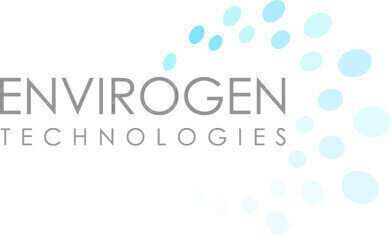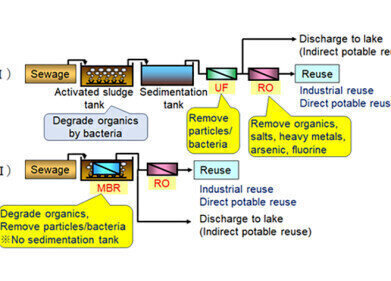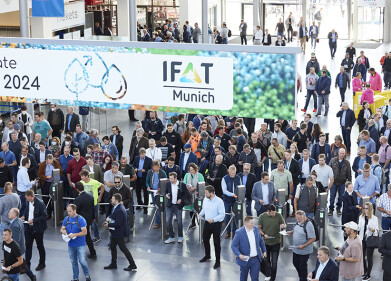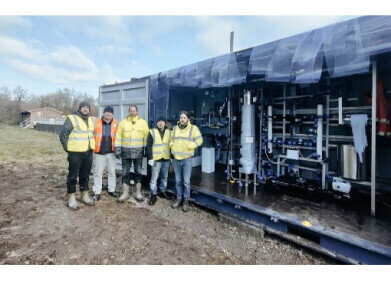Water/Wastewater
World’s First Biological Drinking Water Treatment Facility for Perchlorate Removal
Mar 24 2011
Envirogen Technologies (USA) announces that it has begun construction on a first-of-its-kind biological drinking water treatment plant in collaboration with West Valley Water District (WVWD) and the City of Rialto, California. The new plant, which will be installed at WVWD headquarters in Rialto, will treat perchlorate (as well as nitrate) from groundwater at District Well No. 11 and Rialto Well No. 6, producing up to 3 million gallons per day (MGD) of quality drinking water for area residents. The plant represents a significant move toward addressing the clean-up of a major perchlorate plume that has threatened the Rialto-Colton Basin’s water supply since its detection in 1997. It also represents the culmination of over a decade of technology research and development by Envirogen and a lengthy collaborative process by WVWD and the City of Rialto to secure funding for the project.
The new facility will consist of Envirogen’s fluidised bed bioreactor (FBR) followed by a typical surface water treatment plant to polish the effluent to potable water standards. Using naturally occurring microorganisms on a fluidised media bed, the Envirogen system will simultaneously reduce influent perchlorate concentrations as high as 300 parts per billion (ppb) and nitrate at 20 ppm to non-detectable levels. The end products of this treatment are innocuous nitrogen gas and sodium chloride (salt). Unlike physical-chemical processes commonly used for the removal of these contaminants – that simply involve a phase transfer of the perchlorate – the FBR treatment system is “green” in that it is a destruction technology, requires low energy inputs, and does not produce hazardous by-products. The technology is ideally suited for efficiently handling high levels of perchlorate and nitrate at low cost, and will offer new options for communities and water utilities across the United States faced with treating this contaminant.
According to Dr. Todd Webster, Director, Western Region for Envirogen and a key developer of the FBR technology, the Rialto plant utilizes proven technology but will be the first of its kind to produce drinking water. “In Rialto, we’ve taken a ‘mature’ technology to its next logical step -- the production of quality potable water from heavily perchlorate-laden groundwater via biological means,” Dr. Webster explained. “Envirogen has invested more than a decade in optimizing this technology, and we’ve gained superior capabilities along the way in biomass control and online analysis. With our successful pilot demonstration at a Rialto wellhead in 2008 leading up to the construction of this full-scale plant, we have shown that this technology is safe, effective and can do the job at a lower cost,” he added.
Since its detection in 1997, the perchlorate plume affecting the Rialto-Colton Basin has continued to grow and move through the aquifer, resulting in the shutdown of nearly a quarter of the City’s 22 wells. Extensive efforts have been made by the City of Rialto, WVWD and the State of California to arrive at a remediation strategy, first identifying the FBR as a best available technology (BAT). This was followed by a cooperative effort by all parties to secure funding for the project that resulted in the obtaining of funds from California’s Proposition 84 legislation and various federal and regional authorities.
“Envirogen was instrumental in moving this project forward, in both the development of FBR technology and proving its efficacy to the State DPH. They also helped us acquire Proposition 84 grant money from the State. State officials selected our FBR treatment approach from more than 100 competing applications for grant money – which shows the quality of the concept,” said Tom Crowley, Assistant General Manager West Valley Water District. “We’re excited to be at the forefront of a new era in drinking water treatment and to be developing new sources of high quality drinking water for the community we’re serving,” he added.
Perchlorate is a highly soluble salt anion that is used in the manufacture of solid rocket fuel, fireworks, road flares and several other products. Perchlorate also occurs naturally in some areas of the southwestern United States and in certain fertilizers. Currently, only two states have established maximum contaminant levels (MCL) for perchlorate: Massachusetts (2 ppb, 2006) and California (6 ppb, 2007). Other states, including New Mexico, New York, Arizona, Nevada and Maryland, have set advisory levels ranging from 1 to 18 ppb. In October 2008, the U.S. Environmental Protection Agency (EPA) made a preliminary determination not to regulate perchlorate on the federal level, but its final decision on the matter is still pending. There are reportedly 33 states that have perchlorate in their groundwater supplies. California’s Office of Environmental Health Hazard Assessment recently proposed a new public health goal of 1 ppb for perchlorate; a proposal that is currently under public review. The type of biological treatment represented by Envirogen’s FBR technology will be able to meet even this very stringent regulation should it come into effect.
According to Dr. Webster, the new system points up the potential value of collaboration between technology companies, water utilities and the communities they serve. “It’s been a long journey bringing this technology to bear on the serious groundwater contamination faced by residents of the Rialto-Colton Basin,” he said. “Thanks to the persistence and commitment of everyone involved, we’re now moving forward with an innovative solution to this critical regional issue. We believe this first installation will serve as a showcase to illustrate the exceptional efficiency of biological treatment to handle high concentrations of multiple contaminants in an economical, environmentally sustainable manner, and can light the way for other similarly challenged communities in the region, nation and worldwide,” Webster continued.
Events
May 05 2024 Seville, Spain
May 13 2024 Munich, Germany
May 23 2024 Beijing, China
May 23 2024 Beijing, China
Jun 10 2024 Algiers, Algeria













